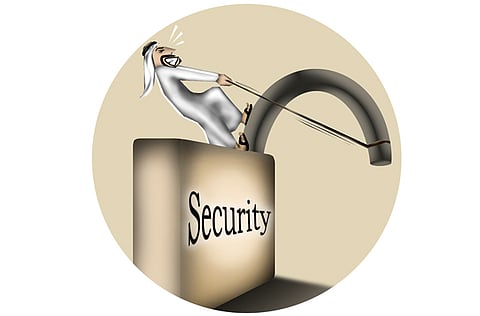GCC must fulfil its security objectives
This will feasibly end America's role as the sole regional protector and envision a bigger role for other players

The 31st Gulf Cooperation Council Summit held in Abu Dhabi this month was a watershed event and a reminder to GCC states in this strategic and precarious region that they have not fulfilled their objective to develop into a formidable security organisation.
Even when the GCC tackles less controversial economic issues, we see much divergence and bickering among the member states, due to mistrust and a lack of confidence-building measures to solve disputes between the smaller and larger states in the organisation.
But the vexing aspect of the GCC as an alliance is its failure to become a formidable organisation in terms of Gulf security even after three decades. This would have balanced the GCC's potential regional rivals, such as chronically unstable Iraq and emboldened and resurgent Iran.
There is an ongoing debate in the US and around the world, including the GCC, over America's waning power and the plans for US military withdrawal. This, while the country is still embroiled in wars in Iraq, Afghanistan and continues its counter-terrorism campaign.
Add to this the biting international financial crisis, which has pushed the US to rethink its international commitments and delegate more responsibilities to other players, within the Gulf region and the rising stars who are more interested in securing their interests and future energy needs.
Clearly, the international system is moving towards a more multi-polar world, with the rising powers of the famed BRIC (Brazil, Russia, India and China) and G20, which is gradually replacing the G8.
On the other hand, the GCC states have become responsible and moderate powerhouses thanks to their sovereign wealth funds and contributions to international stability in terms of energy supplies and energy security in a world hungry for oil and gas.
Making new friends
These facts could shape a future architecture for Gulf security and break the traditional role of the US as the sole protector and supreme foreign power in the Gulf region.
It is no secret that the GCC states are collectively looking at ways to diversify and expand their pool of allies, friends and partners. What is worrying us in the GCC are regional uncertainties that could have negative consequences with regard to failed and fragmented states, weapons of mass destruction, terrorism and nuclear proliferation, which could precipitate an arms race.
A new thinking of Gulf security architecture is emerging. Such a trend could feasibly end America's role as the sole protector of Gulf security and could envision a growing role for other players — under US tutelage at first, but with a more independent and robust role later.
US Secretary of State Hillary Clinton underscored this reality and affirmed America's long-term commitment to Gulf security in her opening remarks at Manama Dialogue earlier this month: "The starting point for the United States is our profound commitment to the security, stability, and development of the [Gulf] region.
"We have enduring stakes here. We have historical friendships here. We have invested blood and treasure to protect those stakes, those friendships, and those vital national security interests. We have acted to reverse aggression — and no one should mistake our resolve in standing by our friends.
"When our engagement with this region began decades ago, our relationships were largely rooted in security and trade. Now, they extend much further. We and our Gulf partners are working together on issues including economic development, energy, education, water, and health — the building blocks of stable, thriving societies. And increasingly, what we are seeing is the opportunity to work with our Gulf partners beyond the region, in fact, on the world stage."
As some of the WikiLeaks cables have shown, GCC leaders complain that the US does not listen to them or take their worries seriously, especially when it comes to Iran. But Clinton argued in her speech that "we seek to strengthen the Gulf Security Dialogue, which represents our primary security coordination mechanism with the Gulf Cooperation Council countries.
"The Dialogue is designed to bolster the capabilities of GCC partners to deter and defend against conventional and unconventional threats and improve inter-operability with the United States and with each other … In sum, cooperation among countries of the region would not simply be helpful, but vital, for no one country can combat the security challenges of the 21st century."
The GCC states should get their act together. There will be more inputs from other major international actors who have a stake in the region. There is room for more players to chip in and contribute to Gulf stability. The GCC mission won't come to fruition as long as it fails to transform itself into a security organisation. When and if this happens, it would usher in a new era in the architecture of Gulf security.
- Dr Abdullah Al Shayji is the Chairman of the Political Science Department at Kuwait University.


